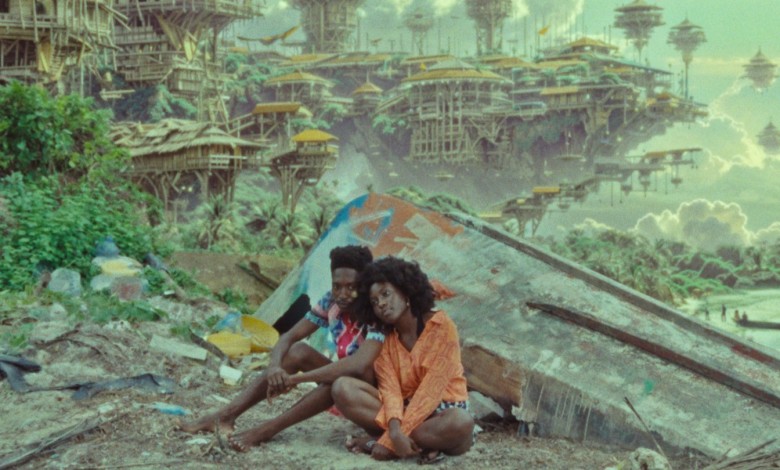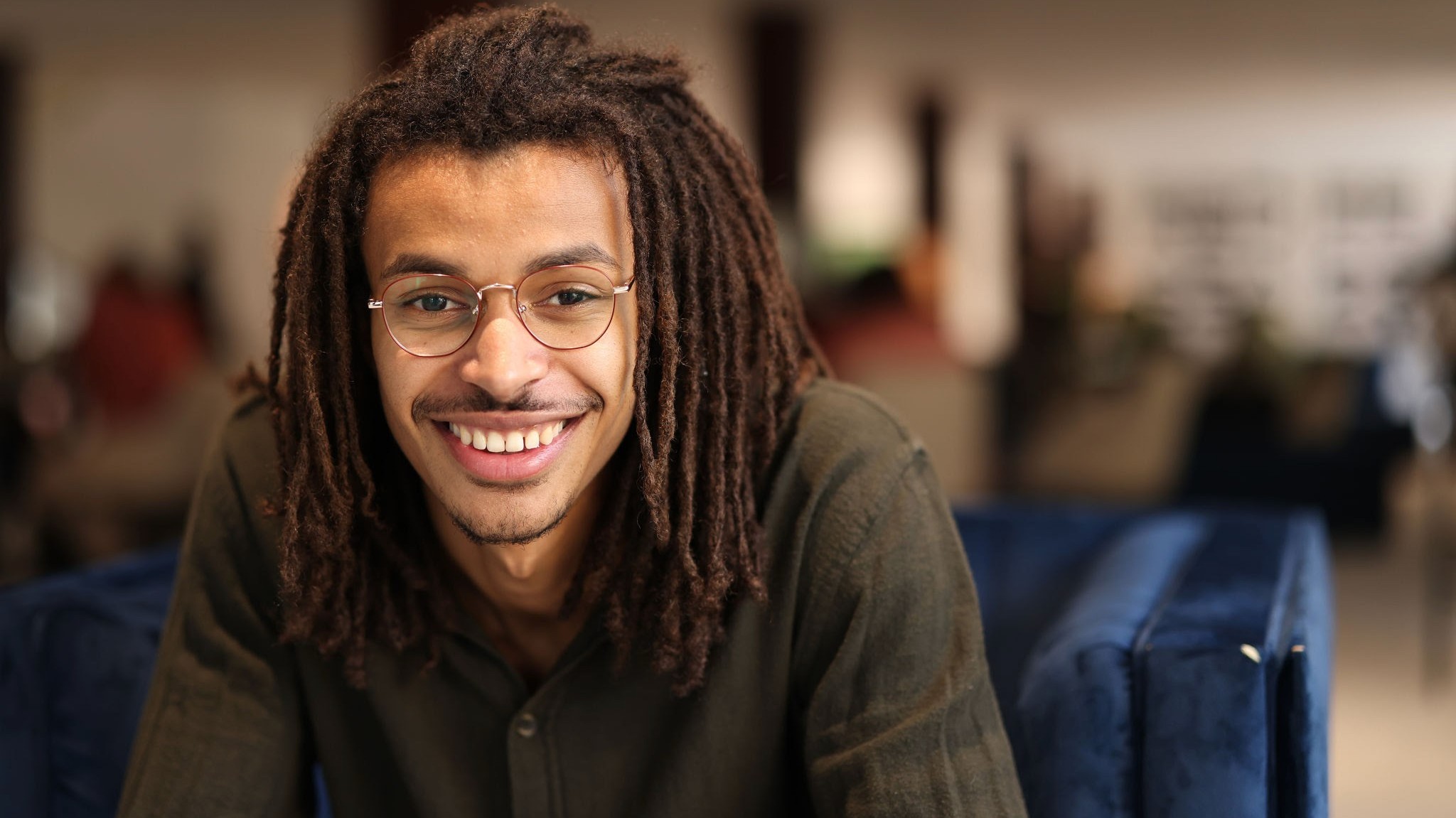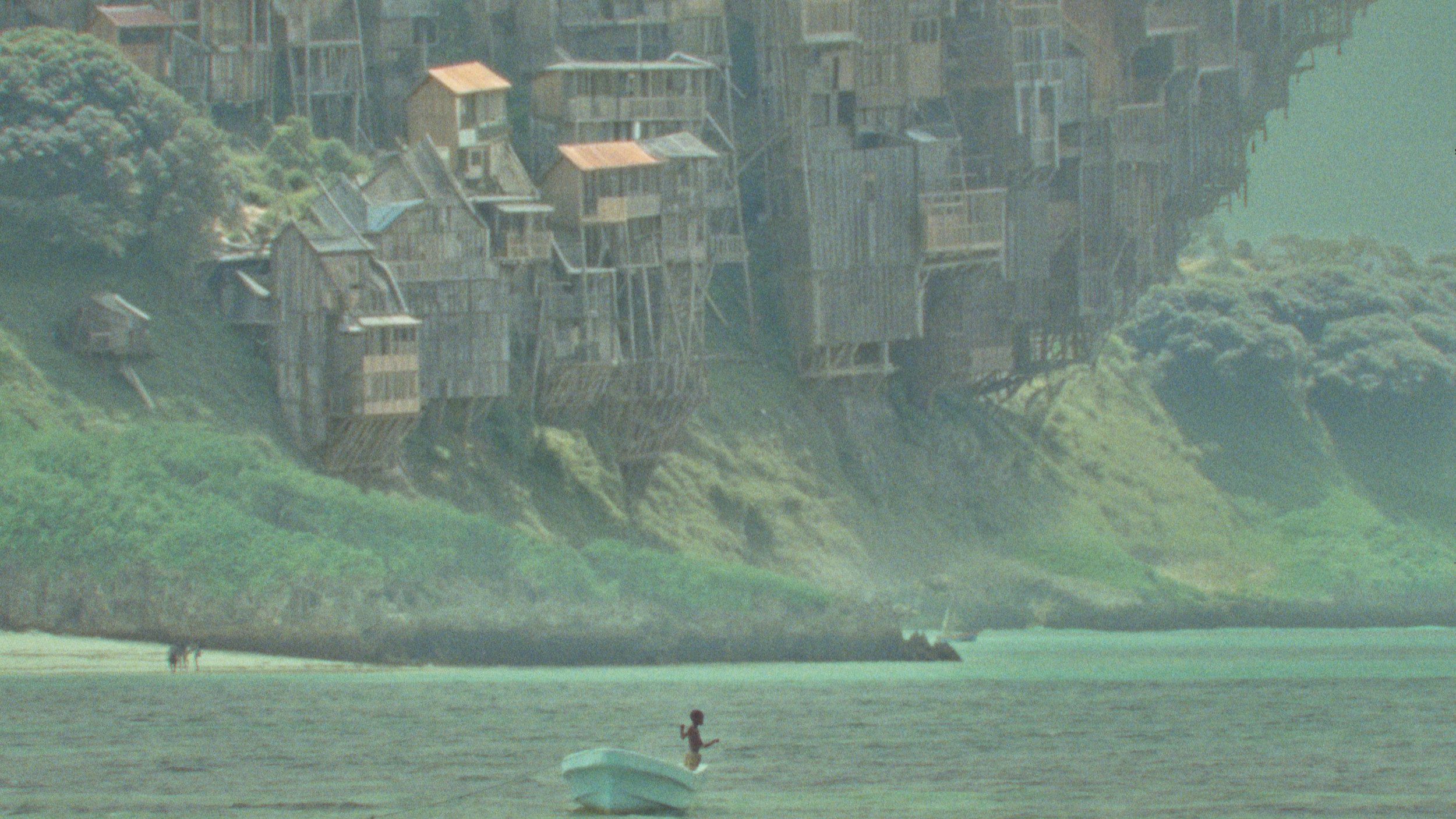Venice Hidden Gem: African Sci-Fi Mockumentary ‘Memory of Princess Mumbi’ Was Shaped by a Personal Loss

Memory of Princess Mumbi is the first Kenyan feature to celebrate its world premiere in the Giornate Degli Autori, or Venice Days, the independent parallel section of the Venice Film Festival. But the sci-fi romance mockumentary set in a futuristic Africa is the fourth feature from Swiss-Kenyan filmmaker Damien Hauser (After the Long Rains, Blind Love), and the themes it explores are also a result of a journey of personal loss and mourning.
“Memory of Princess Mumbi unfolds through … old behind-the-scenes footage, capturing how people find meaning in a tragic world and how even the smallest moments can hold profound beauty,” a synopsis for the mostly improvised movie explains. “In 2094, aspiring director Kuve (Abraham Joseph) films a documentary on the Great War of the 2070s, which erased modern technology and revived kingdoms. Expecting to find despair in Umata, the heart of the war’s aftermath, he instead discovers a village that has found peace. There, he meets Mumbi (Shandra Apondi), who shows him the beauty in everyday moments.” Samson Waithaka plays a prince who promised to marry Mumbi, creating a love triangle.
Hauser is not only the writer and director of Mumbi, but also served as producer, cinematographer, and editor, and handled production design, costumes, and music. Oh yeah, he is also part of the cast.
The themes that Mumbi explores, finding meaning in a tragic world, loss, and memory, are no coincidence. “I didn’t do it fully on purpose, but the more the film came together, the more I realized that the story is directly connected with my brother’s death” at the age of 14 after an accident with a stolen motorcycle, Hauser tells THR. “I wrote the outline shortly after he passed away. I just tried to write to distract myself. I could never have written something that is very tragic or very sad. So I tried to focus on those nice moments. And somehow the whole theme of the film became how we choose to remember somebody and, yes, also processing a loss by focusing on the beautiful memories instead of the whole tragic end of it.”
Hauser started making films when he was 7. “I’ve been shooting all my surroundings throughout,” he shares. “And so I had so many recordings of my brother. Those recordings helped me to remember those moments that were very insignificant, but those little moments that were very nice. I chose never to film him when we were fighting. So, all the footage that I have of him is footage of where we are having a good time together.” In line with that, in Mumbi, we only hear narrations or AI-generated segments of tragic events.

Hauser’s use of AI in Mumbi also allowed him to explore what AI means for the future of filmmaking in the process. “I was generating a lot of AI images just for fun and to see what is possible,” the filmmaker recalls. “For my last films, I have always done all my VFX, so when the whole AI thing came up, I instantly thought of matte painting, where you replace the background.”
This technology interest and experimentation became another theme in the movie. “At the beginning, it was very random, but I tried to connect those themes, including why use AI and why it is a part of the whole story,” Hauser explains. “And for me, the reason lies in what I try to do with this film. I tried to make a film which AI couldn’t do, because AI is always based on films that we already made and know.”
Mumbi couldn’t fully do without some classic film conventions, though. “Films are always about conflict and about the second act, which is very much about tension and conflict,” the creative explains. “But with this film, I had this beautiful footage, which does not really have conflict. And I tried to make a film with just this footage, which didn’t fully work because the first version was two hours long and very boring.”
So what did Hauser do? “I had to push the conflict more, but I feel I came to a middle ground where I still have those insignificant moments, but it never gets boring, I hope.”
Speaking of hope: Mumbi mentions war but provides amid tragedy, which feels like a timely message. “Kuve is more the person who believes in the tragic in the world and that people will always fight wars and that conflicts are a part of us,” explains Hauser. “And Mumbi believes that this might be true, but it really depends on how we view life and how we go through life, and by choosing to focus on those quiet moments, we can still have a beautiful life, even though our surroundings might be very rough.”

Concludes the filmmaker: “I feel like war is always timely. Unfortunately. I guess what is different now is that we have access to information around the whole world, so we constantly know that there is a war somewhere, and how many people are dying, and people are suffering. My generation struggles with it. That’s why I try to ask with this film: How do we deal with it?”
The movie’s co-producers are Kaleem Aftab and Apondi, with the support of Swiss Films and the Red Sea Film Fund. Paris-based Paradise City Sales is handling international rights for the film, which world premieres in Venice on Monday, Sept. 1, before screening in Toronto’s Centerpiece program.
Source: Hollywoodreporter
HiCelebNews online magazine publishes interesting content every day in the movies section of the entertainment category. Follow us to read the latest news.
Related Posts
- 'The Souffleur'
Venice Film Festival
Share on Facebook
…
- Paul Dano Pulls Back the Curtain on ‘The Wizard of the Kremlin’ (Exclusive Look)
- Landmarks, Nuestra Tierra
Venice Film Festival
Share on Facebook
…
- Mark Knoller, Former CBS News White House Correspondent, Dies at 73
- Colin Farrell (left) and Fala Chen in 'Ballad of a Small Player.'
Courtesy of Netflix
…





